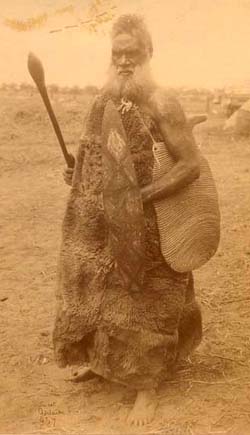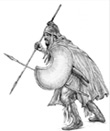Military Resource

Warfare,
Warriors & Empires
| Ancient Military | |
|
Ancient Empires
|
|
Ancient Military History |
 |
||||||||||
| We
all have ancient warriors in our past, and to know their history is
to know ourselves. For better or worse, ancient military might has
shaped our modern world. Through these early struggles peoples, religions
and ideas were thrust into greatness and power or wiped from the face
of earth. Ancient weapon innovations, military organization and commanders
all played a critical roll in determining who controls our worlds
resources and wealth. To understand ancient military history is to
understand where history itself originated, and their for it is essential
in understanding mankind. Ancient Military explores the early history
of warfare for these reasons and because, although brutal, ancient
military history is above all else, extraordinarily interesting! |
|||||||||||
| Ancient
cavalry warfare as painted by Leonardo da Vinci in The Battle of Anghiari, a lost painting located under another mural. |
|||||||||||
 |
|||||||||||
Dawn of Ancient Warfare |
|||||||||||
| Anthropologists
and historians hotly debate when man first ventured into the dark
realm of warfare. Our earliest ancestors certainly beat each other
to death in order to protect their hunting grounds and women, but
the question of when in man organized into military units and waged
war is much more complex. We
know that ancient weapons suchs as simple spears and clubs came into common use shortly after
the dawn of man some three million years ago. Complex spears
were in use 400,000 years ago and that bows first appeared on the
scene around 60,000 years ago. However, cave paintings from this time period
only show hunting scenes. True organized warfare took the adaptation
of food production, hunter gather were simply to few to mount anything
more than raids. Only with food production could the population support
launching mass amounts of armed men into battle. By the 4th millennium BC the agricultural revolution had developed to the point where small cities developed in Mesopotamia. Now the ball could get rolling. Military conquests expanded city states into empires begin in the 3rd millennium BC. Sargon I creating the first empire (Akkadian Empire) and pioneered combined arms tactics using archers, donkey chariots and spear armed infantry units. The Pharaoh Senusret I in the 20th century BC conquered Nubia and placed it under Egyptian control. Babylonia and later the brutally efficient Assyrians built empires in Mesopotamia. While the Hittite Empire ruled much of Anatolia and the Pharaohs ruled the Nile delta. Chariots first appeared on the Eurasian steppes in the 20th century BC, and become central to warfare in the ancient Near East after massive invasions of Chariot using tribes slammed into the settled river valley civilizations. The Aryan, Kassite and Hyksos conquered and ruled the once proud civilizations. The Hyksos took control of the Nile Delta, ruling for several hundred years until the ancient Egyptian military, lead by a Prince who still ruled the middle section of the Nile Valley defeated them using their own Chariot tactics against them.
|
|||||||||||
| This tribal warrior is well protected with his hard wood shield and hide armor plus he's ready to bash a skull with his war club. Tribal warfare became more advanced after the discovery of agriculture and animal husbandry. Village populations could now support the manpower needed to conduct warfare on a large scale. | |||||||||||
|
|
|||||||||||
 |
Ancient Military History RSS Feed Stay up to date on the latest information about ancient military history, weapons and warriors! |

Ancient Militar History Custom Search
|
|||||||||
